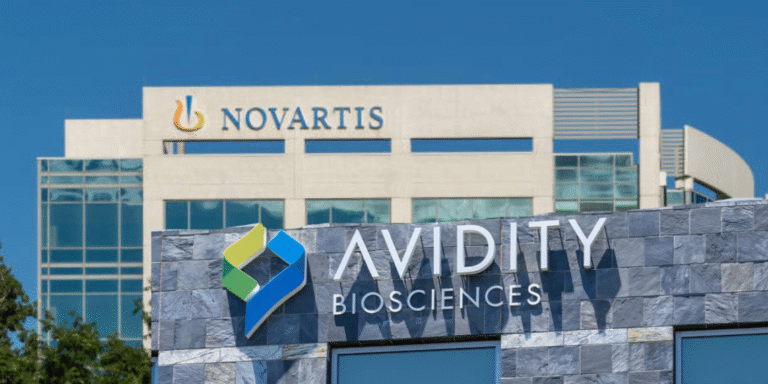Novartis, the Swiss pharmaceutical leader, has announced its plan to acquire Avidity Biosciences in a deal valued at $12 billion. The acquisition is expected to enhance Novartis’s presence in the biotech sector and expand its research and development capabilities.
The move signals Novartis’s strategic focus on innovative therapies, particularly in areas where Avidity specializes. Avidity Biosciences is known for its expertise in antibody-oligonucleotide conjugates, a technology with potential to target serious diseases. Industry analysts say this acquisition strengthens Novartis’s pipeline and positions it as a key player in the rapidly growing biotech market.
Novartis CEO highlighted that the acquisition aligns with the company’s long-term growth strategy. “By integrating Avidity’s expertise, we can accelerate the development of advanced therapies and bring new treatments to patients faster,” the CEO stated. Experts note that such acquisitions are critical for global pharmaceutical companies seeking to maintain leadership in innovation.
The $12 billion deal includes both cash and stock components, reflecting the high strategic value of Avidity’s technology and research assets. Shareholders are expected to benefit from the potential growth in revenue and the expanded product pipeline that the acquisition brings.
Analysts emphasize that the acquisition could have broader impacts on the biotech sector. Combining Novartis’s global reach with Avidity’s specialized technology may set a benchmark for other pharmaceutical firms considering similar partnerships. The deal also demonstrates the increasing importance of biotech innovation in addressing unmet medical needs.
The integration of Avidity Biosciences is expected to enhance Novartis’s research capabilities in multiple therapeutic areas. This includes rare diseases and complex conditions where advanced biotechnology solutions are essential. By leveraging Avidity’s technology, Novartis aims to develop more targeted and effective treatments for patients worldwide.
Financial markets responded positively to the news, with shares of Novartis showing gains following the announcement. Investors see the acquisition as a strategic move that could improve competitiveness and drive long-term growth in a sector that values innovation and cutting-edge research.
Industry observers point out that the acquisition comes at a time of heightened focus on biotechnology, particularly therapies that combine precision medicine with genetic research. Novartis’s approach highlights its commitment to expanding its technological capabilities and bringing new, transformative therapies to market.
The deal also reflects a broader trend of major pharmaceutical companies investing in smaller biotech firms to accelerate innovation. By acquiring Avidity, Novartis gains access to specialized talent, advanced research platforms, and a promising pipeline of experimental therapies. Experts say this strategy is essential to remain competitive in an industry defined by rapid scientific advancement.
Novartis and Avidity will continue working together to ensure a smooth transition and maximize the potential of combined research efforts. Collaborative initiatives are expected to prioritize speed, efficiency, and scientific rigor, aiming to deliver innovative therapies to patients as quickly as possible.
Overall, the acquisition underscores Novartis’s commitment to strengthening its position in the biotech sector. By investing in advanced technologies and specialized research, the company aims to maintain leadership in developing treatments that address complex medical challenges.
The deal is expected to close in the coming months, pending regulatory approvals. Both companies expressed optimism about the future impact of the acquisition on patients, healthcare providers, and global biotech innovation.



